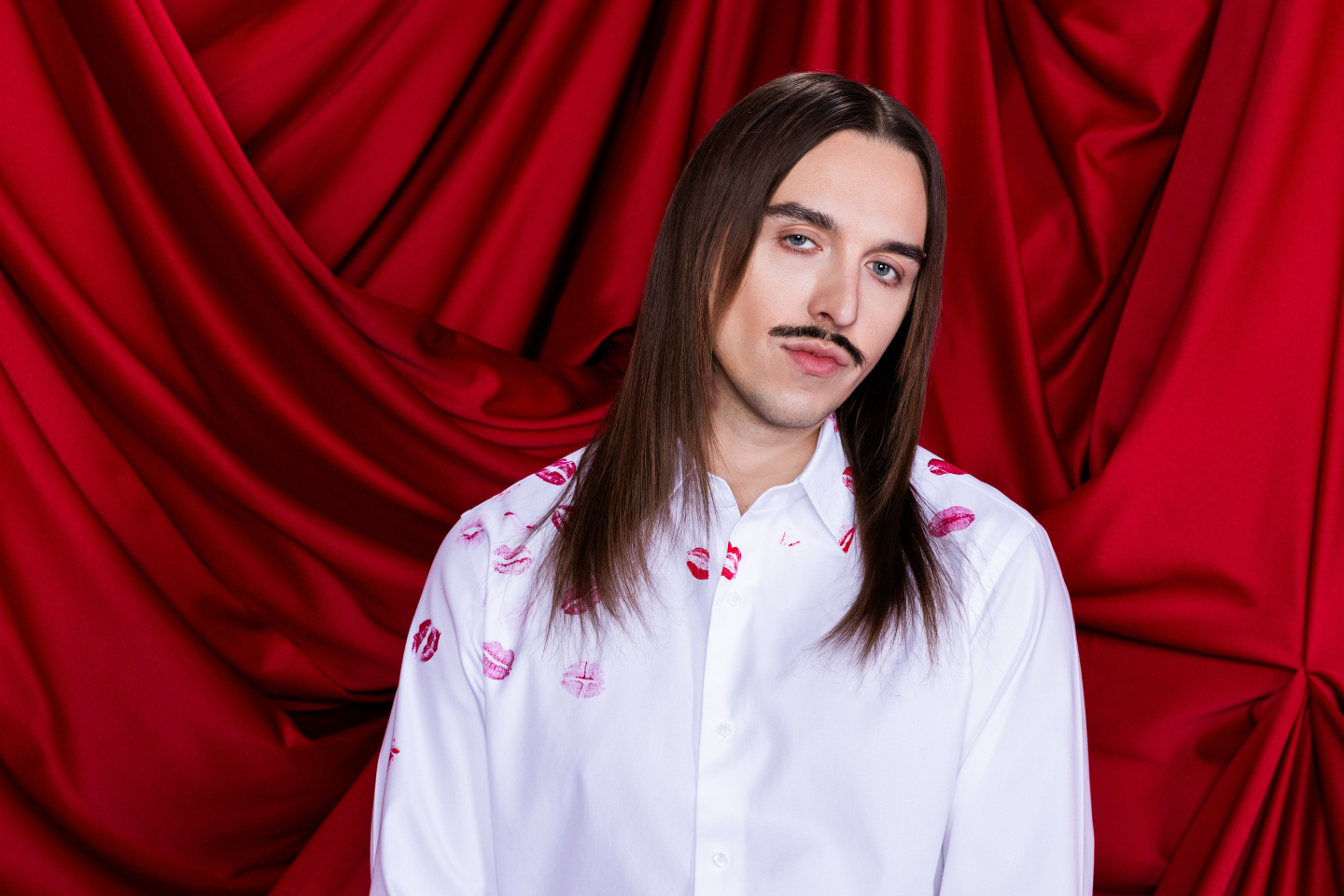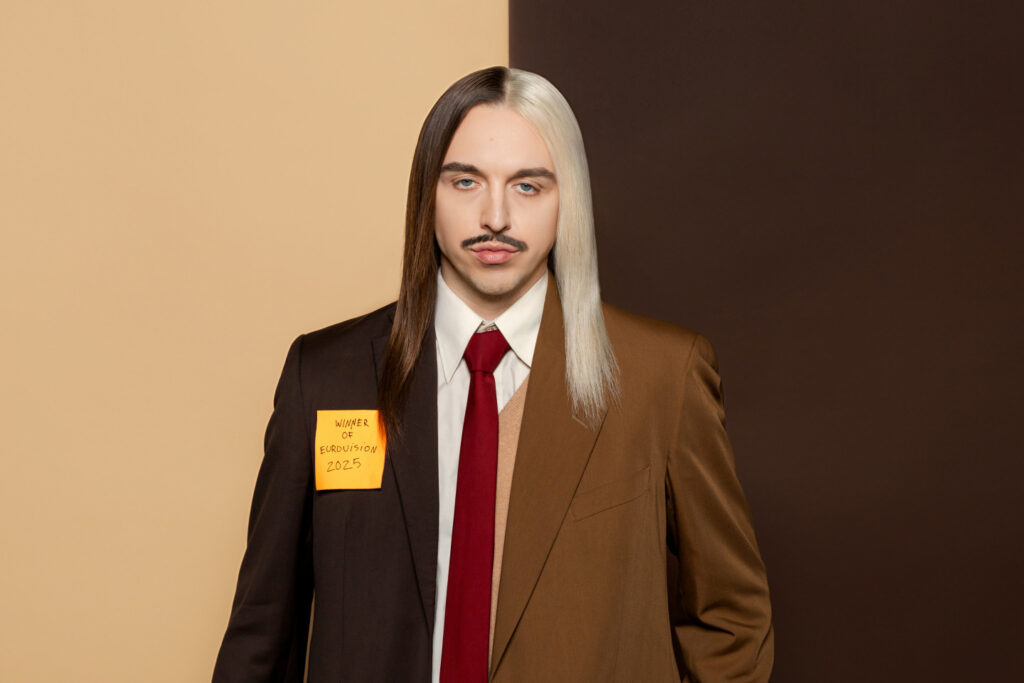Tommy Cash, Estonia’s representative at this year’s Eurovision Song Contest in Basel, Switzerland, has sparked a lively debate across Italy with his entry, “Espresso Macchiato”; the song – a playful yet provocative take on Italian stereotypes – has polarised public opinion, attracted criticism from prominent figures, and simultaneously become an unexpected viral sensation, even prompting new collaborations.
The song “Espresso Macchiato” makes use of what Rolling Stone Italia has described as “macaronic Italian” – a deliberate blend of English with grammatically unconventional and mispronounced Italian phrases.
The track, co-written with Finnish musician Johannes Naukkarinen, plays on clichés such as a love of coffee, Mafia imagery and smoking, and has split opinion. While some Italians regard Tommy Cash’s approach as clever and musically inventive, others have taken offence at what they see as a mocking portrayal.
The controversy has spilled beyond public discourse, drawing the attention of prominent Italian figures. Gian Marco Centinaio, the vice president of the Italian Senate, publicly expressed his disapproval in an Instagram post, declaring: “He [Tommy Cash] should come to Italy and see how decent people really work before daring to write such a stupid and stereotypical song.”
Furthermore, CODACONS, an Italian non-profit consumer protection association, has taken formal action by lodging an appeal with the European Broadcasting Union (EBU). The appeal calls for the disqualification of “Espresso Macchiato” from the Eurovision Song Contest, citing a breach of the competition’s rules, which expressly prohibit discriminatory and stereotypical content.
CODACONS argues that the song is offensive and inappropriate for a platform as influential as Eurovision. As of now, nearly four months after the appeal was submitted, the EBU has yet to issue a public response.

Fuelled by the controversy, “Espresso Macchiato” has surged in popularity across Italy, becoming a widely discussed track and inspiring a flurry of memes. In an unexpected twist, a video of grandmothers from a recreational centre for the elderly in Ostuni, Apulia, dancing to the song went viral. Published online by Filo di Arianna, the event’s organiser, the video captured the women enjoying the track as part of a programme focused on music, dance and creative expression.
Italian grandmothers could join Tommy Cash on stage at Eurovision
The clip’s popularity quickly spread beyond Italy’s borders, eventually catching the attention of Tommy Cash himself. The Estonian artist extended an invitation to five of the grandmothers featured in the video to join him on stage at Eurovision in Basel.
The association has since selected the women who will perform the dance live during the contest. Although they were absent from last week’s rehearsals and are unlikely to appear in the semi-finals, Tommy Cash has assured fans that he is doing everything he can to have them join him on stage – ideally – for the grand final.
This gesture has notably softened Cash’s image in Italy. While his song continues to be seen by some as provocative and even “ridiculous”, his kindness and down-to-earth demeanour have considerably enhanced his popularity.
As a result, Cash has appeared on several Italian television and radio programmes, and has organised concerts and promotional events across the country. Most recently, he collaborated with controversial Italian trap artist Tony Effe on a remix of “Espresso Macchiato”, further cementing his presence in the Italian music scene as Eurovision draws near.
As Tommy Cash readies himself for the Eurovision Song Contest in Basel, the “Espresso Macchiato” saga leaves a lingering question. With his growing visibility and apparent success in defusing the initial backlash, one can’t help but wonder about the Estonian artist’s true intent: is this a calculated bid for Italian televotes, a shrewd effort to cultivate a loyal new fanbase, or simply the work of an unconventional performer revelling in the chaos and spotlight as he approaches Europe’s grandest musical stage?
Marking a bold departure from Estonia’s recent Eurovision entries
Born Tomas Tammemets in 1991, Cash has earned a reputation as one of Estonia’s most unconventional artists. His work blends hip-hop, rave, and experimental sounds, often paired with surreal and satirical visuals.
He has collaborated with international names such as Charli XCX and Little Big, and has made an impression in the fashion world with avant-garde appearances at Paris and Milan Fashion Weeks. His selection marks a bold departure from Estonia’s recent Eurovision entries, which have typically come from pop and indie backgrounds.
The Eurovision Song Contest 2025 will be held at Basel’s St. Jakobshalle arena, following Switzerland’s 2024 victory with Nemo’s “The Code”. The grand final is set for 17 May, with semi-finals on 13 and 15 May. Switzerland last hosted the contest in 1989 in Lausanne.


Estonia has my vote anyway. Greetings from Basel